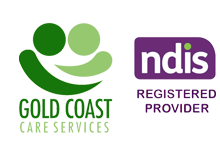There is no legal requirement for someone in Australia to disclose that they have a disability when applying for a new job unless it directly impacts their ability to do the job or causes a health and safety risk. The UK has a very similar approach, and this week, we were reading an interesting article from the RNIB, one of the biggest charities working with sight loss. They were debating the merits of coming clean, and we thought, given that we are an NDIS provider on the Gold Coast, we would share their findings as we see a lot of clients who experience issues finding work with a disability.
From a Discrimination Standpoint
If you disclose a disability during the job application process, then legally, the employer should not dismiss your application unless there is a genuine occupational reason as to why your disability prevents you from doing your work properly. In the UK, if a person feels that there has been discrimination and they have been treated in an unfair manner because they disclosed their disability, then the Equality Act 2010 is there to protect them. The RNIB suggests that disclosure is beneficial as the act could not be cited if the employer had not been made aware of a disability.
From a Trust Standpoint
If you are confident that your disability will not affect your ability to carry out the role, then by talking to your employer about the condition, you are demonstrating honesty which is important to many employers. We are living in a positive time for people with disabilities, and a lot of companies will actively look to employ people who do have disabilities as they can see the value and worth, so also take the time to sell yourself. The example the RNIB use is that a person with vision loss could actually have better computer skills than someone without, as they have aids and tools to help them. So, if you are going to disclose your disability, you could also take the time to explain any concerns you might foresee that an employer would have.
So, How Do You Disclose?
There are many ways of disclosing a disability; the key message is, to be honest. If there are specific questions on the application form, you may have to disclose some information (remember, legally, you do not have to say anything), but it is not necessary to go into details. Equal opportunities monitoring forms may be included in the application, but these are removed from the application form before it is passed to the person shortlisting, so this information will not be seen at that stage. The best thing to do is sell yourself at the interview and make it clear that you are open to discussing your disability at this point. Be positive about your disabilities and highlight your successes. If you know there will be adjustments needed, be sure to explain how you think this can work and demonstrate that you have given it some thought.
